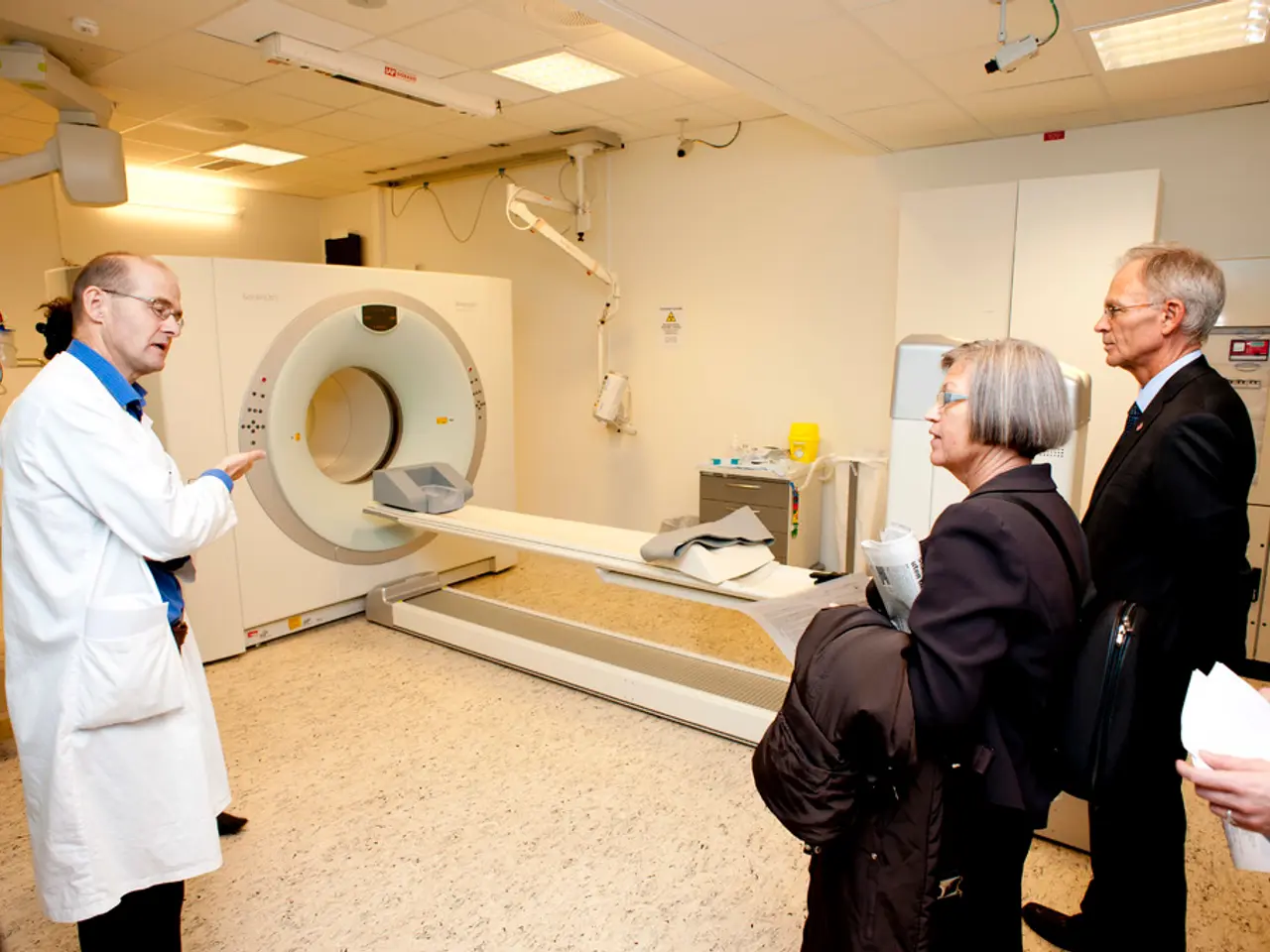Navigating Menopause and Pregnancy: Essential Facts and Insights
As women enter their 40s, a significant change begins to unfold in their reproductive health. Estrogen levels start to decline gradually, marking the onset of perimenopause, a transitional phase that typically lasts for several years and ends with menopause [1].
Perimenopause, which usually begins around age 45 but can start as early as the mid-30s or as late as 50, is characterised by irregular menstrual cycles and a significant decline in estrogen and progesterone production [1][3]. Progesterone declines first, impairing ovulation regularity and making conception more difficult.
The age during perimenopause significantly affects a person's fertility. Fertility begins to decline around the age of 32 and declines more rapidly starting at 37 due to a decrease in egg quality, increased chromosome abnormalities, and other maternal health factors [2]. After age 45, live birth rates drop dramatically, with rates as low as 0.2% reported, and the risk of spontaneous abortion increases sharply, reaching 74% in women over 45 [2].
Despite these challenges, natural conception during perimenopause is possible as long as ovulation continues. However, due to hormonal fluctuations and ovulation irregularity, natural conception becomes less likely [2]. The uterus environment and egg quality tend to worsen as women progress through perimenopause, raising the chance of miscarriage and other pregnancy complications [2].
In vitro fertilization (IVF) can offer hope, but success rates also decline with age and decreasing ovarian reserve during perimenopause and especially after 45. For women experiencing early or perimenopausal infertility, IVF and options like surrogacy may be viable alternatives, but outcomes depend heavily on age and ovarian function [4].
For those who wish to conceive during or after perimenopause, discussing options with a doctor can help increase the chances of success. Observing natural signs like breast tenderness and white vaginal discharge, or using ovulation test strips, can help identify the best time to conceive. Even after menopause, it is possible to become pregnant using assisted reproductive technology, although the risks and challenges may be higher [5].
Some scientists are researching ways to reverse menopause by "rejuvenating" previously dormant ovaries, but more research and clinical trials are necessary to confirm the safety and effectiveness of this type of treatment [6].
In addition to medical interventions, maintaining a well-balanced, nutritious diet and regular exercise can boost overall health and increase the chances of conception. As age advances, it is crucial to prioritise self-care and seek professional advice to navigate the complexities of perimenopause and beyond.
[1] Mayo Clinic. (2021). Perimenopause: Symptoms and causes. [online] Available at: https://www.mayoclinic.org/diseases-conditions/perimenopause/symptoms-causes/syc-20355887
[2] American Society for Reproductive Medicine. (2021). Aging and Reproduction. [online] Available at: https://www.asrm.org/resources-and-publications/patient-resources/fact-sheets/aging-and-reproduction
[3] NHS. (2021). Perimenopause. [online] Available at: https://www.nhs.uk/conditions/perimenopause/
[4] American Society for Reproductive Medicine. (2021). Infertility Fact Sheet. [online] Available at: https://www.asrm.org/resources-and-publications/patient-resources/fact-sheets/infertility-fact-sheet
[5] American Society for Reproductive Medicine. (2021). Menopause and Reproduction. [online] Available at: https://www.asrm.org/resources-and-publications/patient-resources/fact-sheets/menopause-and-reproduction
[6] National Institutes of Health. (2021). Menopause. [online] Available at: https://www.nih.gov/health-information/womens-health/menopause/overview
- Women's health concerns, like bipolar disorder, migraines, and depression, can become more pronounced during perimenopause due to hormonal shifts.
- During pregnancy, women may experience various health issues, such as eczema flare-ups or blocked milk ducts, requiring specific health-and-wellness attention.
- AQ (Amyloid Precursor Protein) is a protein studied by science for potential links to Alzheimer's disease in women, particularly during menopause.
- Pfizer has been involved in research aimed at developing predictive models for women's health conditions, such as depression and Alzheimer's, using data from millions of de-identified health records.
- Maintaining a healthy diet and regular exercise during perimenopause can help manage symptoms like hot flashes, improve mood, and reduce the risk of conditions like osteoporosis.
- As egg quality declines during perimenopause, the risk of chromosomal abnormalities in the resulting offspring increases, making predictive testing essential for potential parents.
- Women in the early stages of menopause may find relief from symptoms like night sweats and mood swings by experimenting with alternative therapies, such as phytoestrogen-rich herbs, acupuncture, or yoga.
- In the realm of women's health, issues like menopause are not just biological events but social phenomena, influencing personal relationships, self-perception, and career development.
- Further advancements in medicine and science could potentially lead to treatments for Alzheimer's, depression, or even reversing menopause, offering new hope for women's health and wellness.




